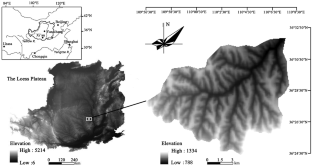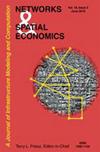Spatial Optimization of Rural Settlements in a Small Watershed Based on Social Network Analysis
IF 1.5
3区 工程技术
Q3 OPERATIONS RESEARCH & MANAGEMENT SCIENCE
引用次数: 0

基于社会网络分析的小流域乡村聚落空间优化
本文章由计算机程序翻译,如有差异,请以英文原文为准。
求助全文
约1分钟内获得全文
求助全文
来源期刊

Networks & Spatial Economics
社会科学-运筹学与管理科学
CiteScore
4.00
自引率
4.20%
发文量
26
审稿时长
>12 weeks
期刊介绍:
Networks and Spatial Economics (NETS) is devoted to the mathematical and numerical study of economic activities facilitated by human infrastructure, broadly defined to include technologies pertinent to information, telecommunications, the Internet, transportation, energy storage and transmission, and water resources. Because the spatial organization of infrastructure most generally takes the form of networks, the journal encourages submissions that employ a network perspective. However, non-network continuum models are also recognized as an important tradition that has provided great insight into spatial economic phenomena; consequently, the journal welcomes with equal enthusiasm submissions based on continuum models.
The journal welcomes the full spectrum of high quality work in networks and spatial economics including theoretical studies, case studies and algorithmic investigations, as well as manuscripts that combine these aspects. Although not devoted exclusively to theoretical studies, the journal is "theory-friendly". That is, well thought out theoretical analyses of important network and spatial economic problems will be considered without bias even if they do not include case studies or numerical examples.
 求助内容:
求助内容: 应助结果提醒方式:
应助结果提醒方式:


